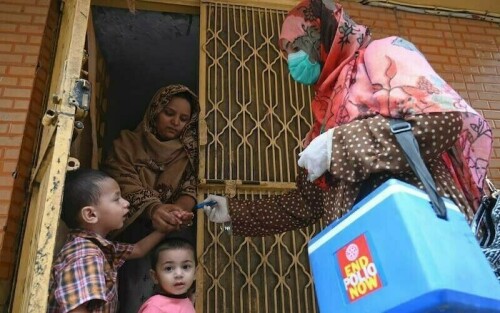ISLAMABAD: On Wednesday, five more environmental samples tested positive for polio, increasing the total to 153 cases from 39 districts so far this year. In 2023, there were 126 cases from 28 districts.
The National Institute of Health Islamabad’s Regional Reference Laboratory for Polio Eradication reports that the five newly discovered cases of Type-1 Wild Poliovirus (WPV1) were discovered in four previously affected districts: Quetta, Kohat, Karachi East (two samples each), and Karachi Central.
According to a lab official who asked to remain anonymous, a positive environmental sample is defined as a sewage sample that exhibits positive poliovirus testing. This suggests that polio programs may not be meeting their intended objectives. “Sadly, fake finger marking is a common practice among Pakistani polio teams without actually giving the vaccine to children, which makes it challenging to eradicate the virus,” he stated.
In order to solve the problem and stop the virus from potentially spreading to other nations, the official emphasized the necessity of political intervention. He issued a warning, saying, “If the situation is not controlled, Pakistan may face further travel restrictions.”
The poliovirus is the primary cause of polio, a highly contagious disease that mainly affects children under five. It can be fatal or induce paralysis since it invades the nerve system.








